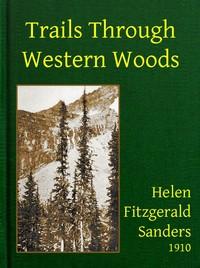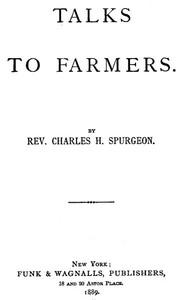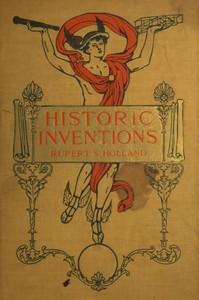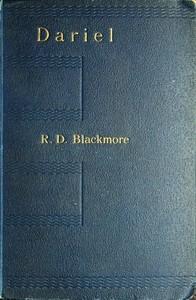|
|
Read this ebook for free! No credit card needed, absolutely nothing to pay.Words: 34819 in 7 pages
This is an ebook sharing website. You can read the uploaded ebooks for free here. No credit cards needed, nothing to pay. If you want to own a digital copy of the ebook, or want to read offline with your favorite ebook-reader, then you can choose to buy and download the ebook.

: Trails Through Western Woods by Sanders Helen Fitzgerald - Dakota Indians; American bison; Salish Indians; Catholic Church Missions; Missions Montana; Montana Description and travel@FreeBooksWed 07 Jun, 2023 ems which break into an intangible mist of bloom. Suddenly out of the tangled forests, a sheet of water, smooth and clear, appears, spreading its quicksilver depths among peaks that still bear their burden of the glacial age. And in the polished mirror of those waters is reflected the perfect image of its mountain crown. First, the purplish green of timbered slopes, then the naked, beetling crags and deep crevasse with its heart of ice. A heavy silence broods here, broken only by the wildly lonesome cry of the raven quavering in lessening undulations of tone through the recesses of the crags. Two Indians near the shore flit away among the leaves, timid as deer in their native haunts. Such is Lake Angus McDonald, and yonder, presiding over all, shouldering its perpetual burden of ice, is McDonald's Peak. Strangely beautiful are these living monuments to the name and fame of a man, and one naturally asks who was this Angus McDonald that his memory should endure in the eternal mountains within the crystal cup of this snow-fed lake? The question is worth the answering. Angus McDonald was a Highland Scotchman, sent out into the western wilderness by the Hudson Bay Company. There must have lurked in his robust blood the mastering love of freedom and adventure which led the scions of the House of McDonald to such strange and varied destinies; which made such characters in the Scottish hills as Rob Roy and clothed the kilted clans with a romantic colour totally wanting in their stolid brethren of the Lowlands. In any event, it is certain that Angus McDonald, once within the magic of the wild, flung aside the ties that bound him to the outer world and became in dress, in manner of life and in heart, an Indian. He took unto himself an Indian wife, begot sons who were Indians in colour and form and like his adopted people, he hunted upon the heights, moved his tipi from valley to mountain as capricious notion prompted, and finally made for himself and his family a home in the valley of Sin-yal-min not far below that lake and peak which do honor to his memory. Physically he was a man of towering stature, standing over six feet in his moccasins; his shoulders were broad and he was very erect. His leonine head was clad with a heavy shock of hair, and his beard, during his later years, snow white, hung to his waist. His complexion was ruddy, his eyes, clear, blue and penetrating. A picturesque figure he must have been, clad in full buckskin leggins and shirt with a blanket wrapped around him. He was known among the Indians and whites through the length and breadth of the country about, and no more strange or striking character quickened the adventure-bearing epoch which we call the Early Days. As he was free to the point of lightness in his nature, trampling down and discarding every shackle of conventionality, he was likewise bound but nominally by the Christian creed. He believed in reincarnation and his one desire was that in the hereafter, when his soul should be sent to tenant the new body, he might be re-born in the form of a wild, white horse, with proud, arched neck and earth-scorning hoofs, dashing wind-swift over the broad prairies into the sheltering hills. So it seems fitting that McDonald's Peak and Lake should remain untamed even as their namesake; that the eddying whirlpool of life should pass them by and that in their embrace the native creatures should live and range as of yore. And may it be that within those shadowy gorges, remote from the sight and hearing of man, a wild, white horse goes bounding through the night? SOME INDIAN MISSIONS OF THE NORTHWEST The mellowness of old romance, the warmth of Latin colour, hang over the Missions of California. The pilgrim lingers reverently in their cloistered recesses, breathing the scent of orange blossoms, reposing in the shade of palm and pepper trees. With the song of the sea in his ears and its sapphire glint in his eye he re-lives the olden days, weaves for himself out of imagination's threads, a picture as harmonious in its tones of faded rose and gray as an ancient tapestry. How much the architectural beauty of these Missions has brought them within the affectionate regard of the people it is hard to say, but undoubtedly it has had an influence. The graceful lines of arch and pillar, the low, broad sweep of roof and corridor, the delicate, yellowish-white of the adobe outlined against a sky of royal blue, stir the sleeping sense of beauty in our hearts and make us pause to worship at such favoured shrines. It is for precisely the opposite reason that we are drawn to the Missions of the Northwest. Austere, ascetic in form, they make their appeal because of their unadorned simplicity. They were originally the plainest structures of logs, added to as occasion demanded and always constructed of such homely materials as the surrounding country could yield. Hands unaccustomed to other labours than telling the rosary or making the sign of the Cross, hewed forest trees and wrought in wood the symbol of their teaching. No wonder, then, that the buildings were small and crude, but their lack of grandeur was the best testimony to the sacrifice and noble purpose of which they were the emblems. Overlooked, isolated they stand, passed by and all but unknown. Yet they are monuments of heroic achievement and devotion; brave men risked their lives willingly to lay these foundation stones of the faith; bitter struggles were fought and won in their consecrated shadows and upon them is the glamour of thrilling episode. During the seventeenth century a little band of French missionaries of the order of St. Ignatius journeyed from their native France to Canadian territory with the purpose of spreading the word of God amongst the savages of that benighted land. One of them, Father Ignace Jogues, became the apostle of the Iroquois and died at their hands, a martyr. Strangely enough, his teachings lived after him and were preserved in a measure, at least, by those who had murdered him because of the message he brought. From the lips of Old Ignace, as he was known, the Selish heard of a mysterious faith symbolized by a Cross, a greater medicine than that of any of the tribes, and of pale-faced, sable-robed priests, who, in the olden time, taught that faith and died happily in the teaching. The Selish practiced a simple, spontaneous kind of paganism. They believed in a Good and Evil Spirit who were constantly at war. These two powers were symbolized by light and darkness and their heroic battle was pictured in the alternate triumph of day and night. If buffalo came in plenty, if elk and moose were slain and the season's yield were rich, then, according to their notion, the Good Spirit was in the ascendency; but if, on the other hand, Winter rode down from the mountains while their larder was low, if fish would not bite and game could not be caught, the influence of the Evil Spirit prevailed. They believed also, in a future existence, happy or miserable according to the merit or demerit of the soul during its mortal life. The worthy shade passed into eternal Summer time, to a land watered by fair streams and green with meadows; in these streams were countless fishes and in the meadows bands of wild horses and endless herds of the beloved buffalo. There the spirit, united with its family, would ride through all eternity, hunting amongst the ghostly flocks in the Summer sun of happy souls. But those who had violated the tenets of the tribe, who had been liars, cowards or otherwise dishonourable, and those negative offenders who had been lacking in love for their wives, husbands and children, had sealed for themselves a bitter fate. These outcasts went to an arctic region of everlasting snow where false fires were kindled to torment their frozen limbs with the mocking promise of warmth. Phantom streams offered their parched lips drink, but as they hastened to the banks to quench their thirst, the elusive waters were ever farther and farther away. So ever and anon, through the years that never seemed to die, the shades were doomed to hurry onward through the night and cold of Winter that knows no Spring, in misery as dark as the shadow engulfing them. The Lands of Good and Evil were separated by savage woods, inhabited by hungry wolves, lithe wild cats and serpents coiled to strike. The wretched sinner in his prison of ice, might after a period of penance, short or long, according to the measure of his offense, expiate his sins and join his brethren in the Happy Hunting Ground. Besides this general belief held in common by the tribe, they cherished countless myths such as those of the creation and many lesser fanciful legends which formed a part of their religion. Free books android app tbrJar TBR JAR Read Free books online gutenberg More posts by @FreeBooks
: Talks to Farmers by Spurgeon C H Charles Haddon - Sermons English 19th century; Baptists Sermons@FreeBooksWed 07 Jun, 2023
|
Terms of Use Stock Market News! © gutenberg.org.in2025 All Rights reserved.






